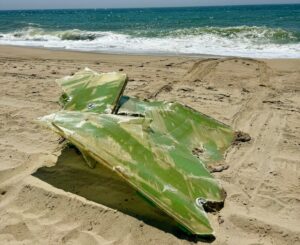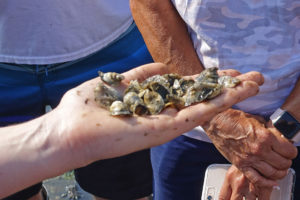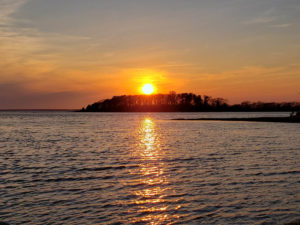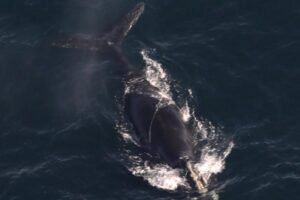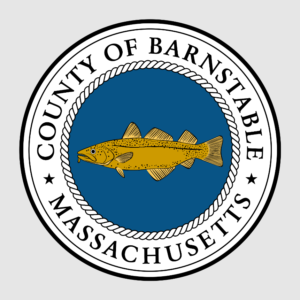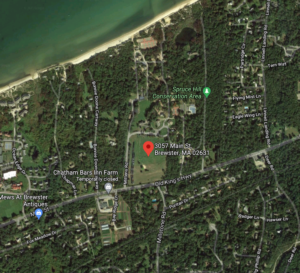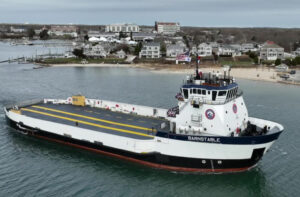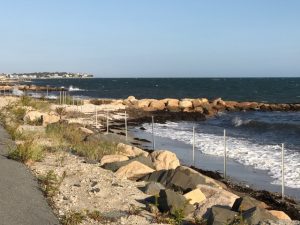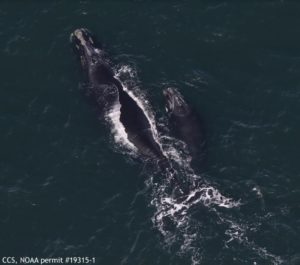
The approximately two month old calf of right whale ‘Harmonia’ playing alongside a channel marker in Cape Cod Bay.
Credit: Center for Coastal Studies, NOAA permit #19315-1
NANTUCKET – North Atlantic right whale advocacy group Oceana has called for the implementation of mandatory speed zones for vessels travelling in the Cape Cod and Islands area.
The call comes after Oceana used their ship-monitoring software Ship Speed Watch to detect the Brazil, a 15,000-container shipping vessel over 1,200 feet long, exceeding the 10-knot voluntary speed limit within a right whale conservation zone.
The Malta-flagged vessel owned by a French shipping company was travelling at 13.4 knots, a considerable danger for whales given the ship’s massive size, said Oceana.
Ship Speed Watch allows users to monitor ship speeds and positions based on self-reported information in areas frequented by right whales.
“North Atlantic right whales are critically endangered. There are about 400 of them left in the world and right now there’s an aggregation of them just south of Nantucket and Martha’s Vineyard,” said Gib Brogan, Senior Campaign Manager with Oceana.
The voluntary 10-knot speed limit in the right whale conservation zone is thanks to the Dynamic Management Area and Right Whale Slow Zones program instituted by National Oceanic and Atmospheric Administration Fisheries.
Voluntary DMAs may be established by NOAA Fisheries based on visual sightings documenting the presence of three or more right whales within the area.
Mariners are encouraged by NOAA Fisheries to avoid these areas entirely or reduce speeds to 10 knots or less while transiting through them.
The DMA south of Nantucket was established earlier in the month and has been recently extended through September 29.
According to Oceana, collisions with ships and their propellers are one of the leading causes of deaths for the slow-moving North Atlantic right whale and reducing speeds of ships down to 10 knots or less can reduce the risk of death by up to 86 percent.
“There are some ships out there that are cooperating with it and that’s good to see. But we need to get closer to one hundred percent cooperation if we’re going to protect these whales,” said Brogan.
“With 400 of them left, we need to make sure that every whale is fully protected and that we’ve reduced the risk of all threats,” said Brogan.






